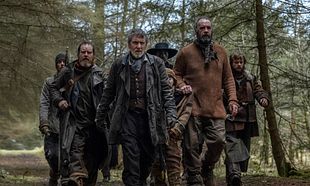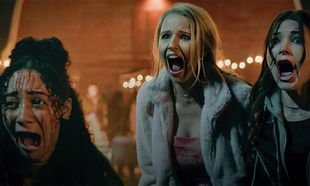'The Mule' is by no means Eastwood's finest work, but it's certainly his most comedic and charming in years...
After his horticultural business is foreclosed upon, Earl Stone (Clint Eastwood) isn't ready to give up - and decides to become a drug mule for a Mexican cartel in order to solve his financial problems. When the DEA begins to investigate the cartel's dealings, few of the agents (Bradley Cooper, Michael Pena) realise that a 90-year old Korean War veteran is the legendary mule known as 'El Tata'.
'The Mule', on the surface, seems like it's thoroughly within Clint Eastwood's wheelhouse. It's about men with ambiguous morals doing the wrong thing for the right reasons. 'Unforgiven' was perhaps the most focused exploration of these themes, but 'The Mule' - while being marketed as this gripping thriller-drama - actually plays out in a completely different way. If anything, it's more closer to a caper comedy ala 'Catch Me If You Can' by way of 'About Schmidt'.
Eastwood's portrayal of Earl Stone is light, comedic and deftly charming. He's nowhere close to the hard-bitten, growling Kowalski from 'Gran Torino', nor is he as broken and damaged as William Munny from 'Unforgiven'. Instead, Stone is more of a good-time Charlie - dancing with women at parties, being the centre of attention, and ingratiating people with his easy manners and gentle voice. Eastwood aims the camera on Stone's frailty and vulnerability, there's no raspy one-liners and he almost seems to shuffle from place to place when he's out of the car. That Eastwood, whose spent his career playing tough guys and hard men, now chooses to portray his age and the frailty that comes with it is fascinating.
The supporting cast, which includes Bradley Cooper, Andy Gracia and Dianne Wiest, don't really have much to do and while there's a few touching, intimate moments with Wiest - who plays his neglected ex-wife - the tone through 'The Mule' is really comedic. For example, there are two - count them, TWO - scenes in which Clint Eastwood has a threesome with women well over half his age. While one of them is implied, one's explicitly clear in what's going to the point of whether you don't know whether to laugh or be horrified. That's really the line that 'The Mule' straddles throughout its run-time - whether you're meant to be laughing at how brazenly Earl Stone gets away with it, or examining how it is that a 90-year old man came to smuggle drugs so effectively.
Eastwood keeps the direction light and breezy, and you get the sense that there's more than a couple of scenes left in for padding rather than serving a purpose - the two three-way scenes, especially. There's also a few moments where Eastwood acknowledges the nature of racial profiling, and how it was that nobody came to look twice at him whilst other Mexicans were pulled over and harassed by police. They're neither subtle nor effective, but at least it acknowledges that it's a thing rather than ignoring it entirely. There's also a pointed scene between Wiest and Eastwood, where she berates him for spending his life away from his family, that the people he hangs around with "just give each other awards", that's most likely Eastwood acknowledging his own life and career.
'The Mule' is by no means Eastwood's finest work, but it's certainly his most comedic and charming in years. While many believed that 'Gran Torino' would have been his swansong, 'The Mule' may serve as an incongruous but entertaining end to his career as an actor and director.








































































